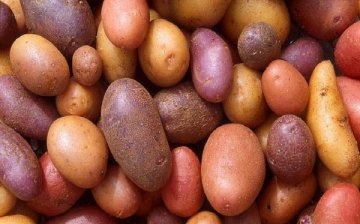Mineral fertilizers for potatoes - classification
Many living organisms on earth need additional nutrients - a person takes vitamin complexes for this, and plants need to be nourished / fed. There are two types of feeding: organic and mineral fertilizers.
Organic fertilizers include processed products of natural origin - rotted manure and peat, ash and others.
Mineral fertilizers include trace elements and macronutrients necessary for fruitful growth and development of a good harvest.
Today we will talk about fertilizing potatoes with mineral fertilizers, namely, which fertilizers are better, which part of the plant they affect, and more.
All mineral fertilizers for potatoes can be systematized according to certain properties:
- Phosphate and potash fertilizers - accelerate the ripening process of potatoes and increase the starch content of the crop. It is better to use in combination with other mineral or organic fertilizers. Also, phosphorus fertilizers are used with an increased content of ammonium ions in the soil, and potassium fertilizers are supplemented with a chloride content.
- Nitrogen fertilizers of nitrate forms also increase starchiness, they include urea, nitrate, ammonia water and others.
- Trace elements - copper, manganese, boron, zinc. These mineral fertilizers for potatoes perform individual functions, but in general they help to accumulate nutrients in tubers and fight various diseases and pests, as well as regulate the metabolism of proteins and carbohydrates.
During the digging of the earth, some types of fertilizers are applied, but the bulk is applied during planting in a hole or furrow. After applying the fertilizer, it is imperative to dig it up with the soil.




There is no need to get carried away with the use of mineral fertilizers, because they increase the acidity of the soil in the garden. Therefore, nevertheless, it is better to bring humus or compost under the potatoes when planting.